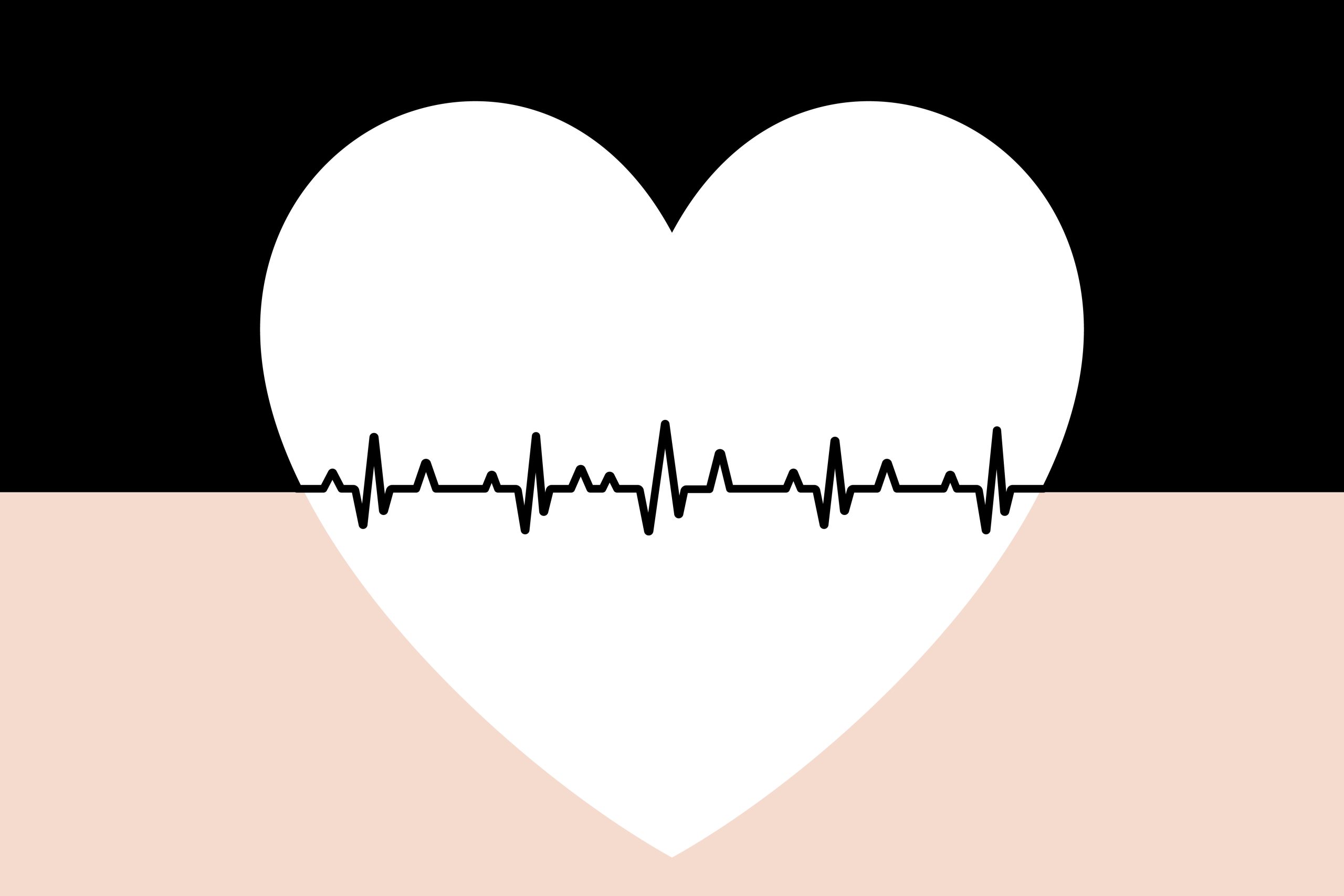It’s no secret that heart health is a major concern. Cardiovascular disease remains the most common cause of death around the world. All aspects of our life can impact our heart health. While that may seem intimidating, it also means there are steps we can take to lower our risk of heart attack and stroke. For American Heart Month, T&S talked to Dr. Lauren Munsch Dal Farra, cardiologist and CEO of PALM Health, about the variety of lifestyle factors that impact heart disease risk and how you can keep yourself healthy.
 Sleep
Sleep
According to research, inconsistent sleeping patterns can nearly double a person’s risk for heart disease. Dal Farra explains that disordered sleep impacts hormones in the body linked to weight gain and blood pressure, both factors that can increase the likelihood of heart attack or stroke. “The No. 1 thing people are surprised to learn impacts heart health is sleep,” she notes. “I always recommend at least seven hours of good sleep nightly.”
How to Sleep Better
- Create a bedtime routine. “Oftentimes, we don’t give ourselves the time to let our body relax and switch gears,” Dal Farra says. “Before you go to sleep, disconnect from screens to avoid blue light, make a relaxing cup of decaffeinated tea and read a book or magazine to unwind. This will increase your quality of sleep.”
- Don’t eat or drink before bed. Especially avoid caffeine, alcohol and foods that are high in fat or sugar. Nicotine also can impact your sleep.
- Make sure you are staying active. Physical activity promotes better sleep, but it should not be done too close to bedtime.
- Take a supplement before bed. Dal Farra recommends magnesium, and melatonin can help reset your circadian rhythm so it starts preparing for sleep.
- Turn your bedroom into a restful environment. Your room should be dark, cool and quiet. A fan, ear plugs and light dampening shades can all be beneficial.
 Diet
Diet
One of the biggest lifestyle factors associated with heart health is diet, and it’s for good reason. Eating a diet high in saturated fats, trans fat and cholesterol has been linked to heart disease, and too much salt can lead to a rise in blood pressure. “Nutrition and maintaining a heart healthy diet are very important,” Dal Farra says. “Try to eat as many organic unprocessed foods as possible.”
How to Eat Heart Healthier
- It’s important to check your food labels. “People don’t realize how much added sugars, sodium and trans fats are in what they eat every day,” Dal Farra says. “That includes the beverages you drink.” When shopping, look for foods that the American Heart Association has certified as heart healthy. They can be identified by the Heart-Check label.
- Add more soluble fiber into your diet. Dal Farra suggests doing so with foods like oatmeal, brussels sprouts and other fruits and vegetables. Fiber helps us maintain digestive health, feel fuller longer and even positively impacts blood sugar and cholesterol levels.
- Eat foods with omega-3 fatty acids. These include salmon, herring and hemp and flax seeds. The unsaturated fats help your heart by reducing the inflammation in your body that can damage blood vessels.
- Dink alcohol in moderation. Dal Farra notes excessive alcohol consumption has been linked to high blood pressure, heart failure and stroke.
- Avoid tobacco or nicotine. This includes smoking, vaping, other products and secondhand exposure. It improves your cholesterol levels, and research has shown that within a year of quitting, your risk of heart disease is cut in half.
 Exercise
Exercise
“Incorporating physical activity into your routine is extremely important,” Dal Farra notes. The American Heart Association recommends that adults get at least 150 minutes of moderate-intensity aerobic activity per week. Alternatively, they also suggest 75 minutes of vigorous aerobic activity, preferably spread throughout the week.
How to Keep Active
- Break up your workout. The recommended 150 minutes of moderate activity doesn’t have to be tackled at once. It only takes a little more than 20 minutes a day to reach that goal, so adding two or three short activity sessions each day should cover it.
- Find ways to incorporate physical activity into what you’re already doing every day. “Opt to take the stairs at work instead of the elevator, or pick a parking spot further from the door so you’re walking more,” Dal Farra says. “I suggest taking a five-minute movement break every hour. Not only does it get more activity into your daily routine, it will improve your focus.”
- Work out with someone else to increase your motivation. This can mean finding an exercise buddy who can make you feel accountable or choosing to schedule workout sessions with a professional trainer.
- Find other ways to make yourself more accountable. “Instead of joining a gym and just thinking you’ll go when you have the time, sign up for class so you’ve made a commitment to show up,” Dal Farra recommends. “Don’t solely rely on your own internal motivation.”
 Stress
Stress
Mental health impacts physical health. “Stress is another factor that people often overlook when thinking about heart health,” Dal Farra notes. “High stress can lead to weight gain and high blood pressure, which are major risk factors for cardiovascular disease.” Along with impacting dietary habits, stress can lead to unhealthy behaviors like smoking, lack of activity and disordered sleep.
How to Manage Stress
- Take time for activities you enjoy. Even if it’s only for 10 or 15 minutes, doing something simple that makes you feel good can help relieve stress. Play with your kids or pets, catch up with a friend, stretch and move, garden or read a book.
- Try different wellness therapies. Dal Farra recommends trying stress interventions such as acupuncture or an infrared sauna. “It is both relaxing and helps reduce blood pressure, which is great for your heart health,” she says. “Meditation and breathing exercises also are very useful ways to reduce stress.”
- Journaling is a great way to manage stress. It also can help you sleep better. Write down what’s on your mind before bed and then set it aside for the next day.
- Defuse your stress in the moment. When faced with a stressful situation, take steps to calm yourself down. Try counting to 10, listen to chill music, take three deep breaths using belly breathing or walk away from the situation for a while.
Additional sources: American Heart Association, Centers for Disease Control and Prevention








